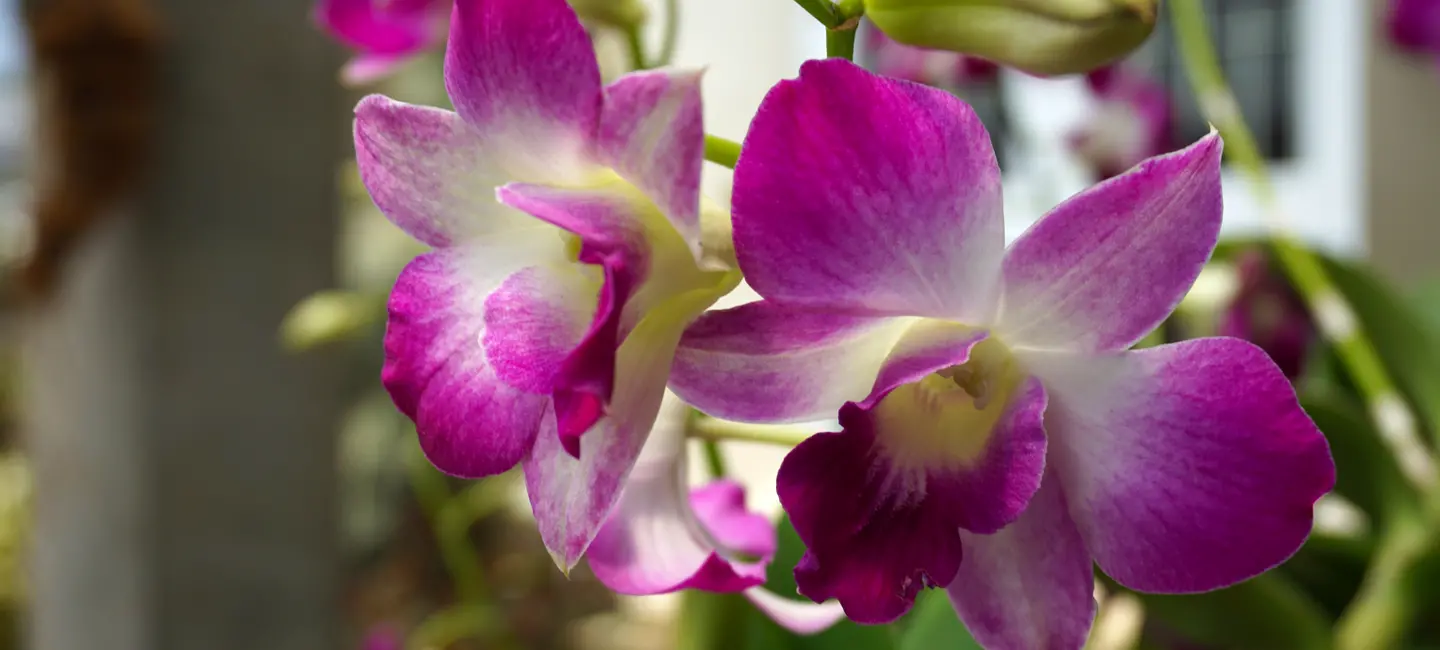
Dendrobium is in the orchid plant family. This type of orchid is native to China, Hong Kong, Taiwan, India, Thailand, Vietnam, and other temperate and tropical Asian regions.
Traditionally, dendrobium plants have been used in Traditional Chinese medicine. Today, dendrobium is showing up in pre-workout supplements used to boost physical and athletic performance, but there is no good scientific evidence to support these uses. Some experts are still touting it as a replacement for the stimulant dimethylamylamine (DMAA). But at least one popular dendrobium-containing supplement (Craze, Driven Sports) has been identified by the U.S. Food and Drug Administration (FDA) as being adulterated with a stimulant drug.
Is It Effective?
NatMed Pro rates effectiveness based on scientific evidence according to the following scale: Effective, Likely Effective, Possibly Effective, Possibly Ineffective, Likely Ineffective, Ineffective, and Insufficient Evidence to Rate.
- A type of inflammatory bowel disease (Crohn disease).
- A type of inflammatory bowel disease (ulcerative colitis).
- An eating disorder (anorexia nervosa).
- Athletic performance.
- Cough.
- Dry mouth.
- Erectile dysfunction (ED).
- Nausea and vomiting.
- Stomach pain.
- Stomach ulcers.
- Swelling (inflammation) of the stomach (gastritis).
- Tuberculosis.
- Other conditions.
More evidence is needed to rate the effectiveness of dendrobium for these uses.
Is it Safe?
Dendrobium contains several chemicals. Some of these chemicals might have effects in the body. They might lower blood pressure, increase blood sugar, and reduce pain. They might also increase the chance of seizure. However, none of these effects have been studied in people. Therefore, the effects of dendrobium in people are not clear.
When taken by mouth: There isn't enough information to know if dendrobium is safe or what the side effects might be when taken by mouth.
Special Precautions & Warnings:
Pregnancy and Breast-feeding: There isn't enough information to know if dendrobium is safe to take during pregnancy or breast-feeding. Stay on the safe side and avoid use.
Seizures: There is a concern that dendrobium might increase the chance of seizure in some people. Dendrobium contains a chemical that might increase the chance of seizure. If you have ever had a seizure, don't use dendrobium.
Medications for high blood pressure (Antihypertensive drugs)
Interaction Rating=Minor Be watchful with this combination.
Dendrobium might decrease blood pressure. Taking dendrobium along with medications for high blood pressure might cause your blood pressure to go too low.
Some medications for high blood pressure include captopril (Capoten), enalapril (Vasotec), losartan (Cozaar), valsartan (Diovan), diltiazem (Cardizem), Amlodipine (Norvasc), hydrochlorothiazide (HydroDIURIL), furosemide (Lasix), and many others.
Medications that increase the chance of having a seizure (Seizure threshold lowering drugs)
Interaction Rating=Moderate Be cautious with this combination.
Some medications increase the chance of having a seizure. Taking dendrobium might cause seizures in some people. If this combination is taken, it might increase the chance of having a seizure. Do not take dendrobium with medications that increase the chance of having a seizure.
Some medications that increase the chance of having a seizure include anesthesia (propofol, others), antiarrhythmics (mexiletine), antibiotics (amphotericin, penicillin, cephalosporins, imipenem), antidepressants (bupropion, others), antihistamines (cyproheptadine, others), immunosuppressants (cyclosporine), narcotics (fentanyl, others), stimulants (methylphenidate), theophylline, and others.
Medications used to prevent seizures (Anticonvulsants)
Interaction Rating=Moderate Be cautious with this combination.
Medications used to prevent seizures affect chemicals in the brain. Dendrobium might also affect chemicals in the brain in a way that might possibly decrease the effectiveness of medications used to prevent seizures.
Some medications used to prevent seizures include phenobarbital, primidone (Mysoline), valproic acid (Depakene), gabapentin (Neurontin), carbamazepine (Tegretol), phenytoin (Dilantin), and others.
Herbs and supplements that might lower blood pressure: Dendrobium might lower blood pressure. Using it along with other herbs and supplements that have this same effect might increase the risk of blood pressure dropping too low in some people. Some of these products include andrographis, casein peptides, cat's claw, coenzyme Q10, fish oil, L-arginine, lyceum, stinging nettle, theanine, and others.
Herbs and supplements that might lower seizure threshold: Dendrobium might increase the chance of having a seizure in some people. Taking it along with other herbs and supplements that might also cause seizures could increase the chance of having a seizure. Do not take dendrobium with other herbs and supplements that might increase the chance of having a seizure. Some of these herbs and supplements include butanediol, cedar leaf, Chinese club moss, EDTA, folic acid, gamma butyrolactone, gamma hydroxybutyrate, ginkgo, glutamine, huperzine A, hydrazine sulfate, hyssop oil, juniper, L-carnitine, melatonin, rosemary, sage, wormwood, and others.
There are no known interactions with foods.
The appropriate dose of dendrobium depends on several factors such as the user's age, health, and several other conditions. At this time there is not enough scientific information to determine an appropriate range of doses for dendrobium. Keep in mind that natural products are not always necessarily safe and dosages can be important. Be sure to follow relevant directions on product labels and consult your pharmacist or physician or other healthcare professional before using.
Dendrobe Noble, Dendrobium Extract, Dendrobium nobile, Dendrobium officinale, Extrait de Dendrobium, Jin Chai Shi Hu (D. nobile), Nobile Dendrobium (D. nobile), Orchid Stem, Stem-Orchid, Tie Pi Shi (D. officinale), Vinterdendrobium (D. nobile).
Information on this website is for informational use only and is not intended to replace professional medical advice, diagnosis, or treatment. While evidence-based, it is not guaranteed to be error-free and is not intended to meet any particular user’s needs or requirements or to cover all possible uses, safety concerns, interactions, outcomes, or adverse effects. Always check with your doctor or other medical professional before making healthcare decisions (including taking any medication) and do not delay or disregard seeking medical advice or treatment based on any information displayed on this website.
© TRC Healthcare 2024. All rights reserved. Use and/or distribution is permitted only pursuant to a valid license or other permission from TRC Healthcare.
